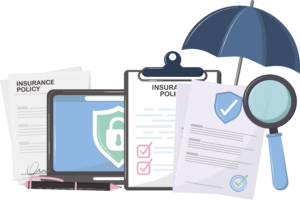This is an important read as an employer and also an information sheet that you may wish to share with your employees.
The Government has reintroduced “Shielding” guidance for those who are deemed “clinically extremely vulnerable” in response to the National restrictions that came into effect on 5 November.
Many people were contacted by text and email message throughout the evening and night from the Department of Heath & Social Care. The communication states that this is not a return to the very restrictive shielding advice that was implemented for the first lockdown, but more of to follow extra precautionary shielding measures to keep safe.
Source gov.uk
Guidance on shielding and protecting people who are clinically extremely vulnerable from COVID-19
Updated 4 November 2020
Who this guidance is for
This guidance is for everyone in England who has been identified as clinically extremely vulnerable. If you are in this group, you will previously have received a letter from the NHS or from your GP telling you this. You may have been advised to shield in the past.
This guidance applies to clinically extremely vulnerable individuals only. Others living in a household with someone who is clinically extremely vulnerable are not advised to follow this guidance. They should instead continue to attend work and school in accordance with the general advice and regulations set out in the national restrictions guidance from 5 November.
What has changed
COVID-19 case numbers are rising rapidly across the whole of the UK.
Everyone in England, including those who are clinically extremely vulnerable, is required to follow the new national restrictions from 5 November, which have been set out by the government and apply to the whole population. These restrictions:
- require people to stay at home, except for specific purposes
- prevent people gathering with those they do not live with, except for specific purposes
- close certain businesses and venues
The new information below includes additional guidance for clinically extremely vulnerable people, to help protect you from coronavirus (COVID-19). We will also write to you with a version of this guidance.
Socialising
The new national restrictions from 5 November, which apply to everyone, mean you must not leave or be outside of your home, except for limited purposes, which are set out in that guidance.
We are advising clinically extremely vulnerable people to stay at home as much as possible, except to go outdoors for exercise or to attend essential health appointments. You may wish to meet up with one other person from outside your household or support bubble, for example, to exercise in an outdoor public place, but we suggest that you always try to do so as safely as possible.
Try to keep all contact with others to a minimum and avoid busy areas. Whenever you go out, continue to maintain strict social distancing, wash your hands regularly and avoid touching your face.
You should also try to stay 2 metres away from other people within your household, especially if they display symptoms of the virus or have been advised to self-isolate.
Work
You are strongly advised to work from home. If you cannot work from home, you should not attend work for this period of restrictions.
If you cannot attend work for this reason, you may be eligible for Statutory Sick Pay (SSP), Employment Support Allowance (ESA) or Universal Credit. Other eligibility criteria will apply. The formal shielding notification you receive may act as evidence for your employer or the Department for Work and Pensions (DWP) that you are advised to follow shielding guidance and should not work outside of your home for the period stated in the letter.
If you were on payroll before 30 October 2020, you may also be eligible for the Coronavirus Job Retention Scheme (on furlough), which is being extended until 2 December. Speak to your employer if you think you are eligible.
Other people you live with who are not clinically extremely vulnerable themselves can still attend work if they cannot work from home, in line with the wider rules set out in the new national restrictions from 5 November.
Education settings
More evidence has emerged that shows there is a very low risk of children becoming very unwell from COVID-19, even for children with existing health conditions. Most children originally identified as clinically extremely vulnerable no longer need to follow this advice. Speak to your GP or specialist clinician, if you have not already done so, to understand whether your child should still be classed as clinically extremely vulnerable.
Those children whose doctors have confirmed they are still clinically extremely vulnerable are advised not to attend school while this advice is in place. Your school will make appropriate arrangements for you to be able to continue your education at home. Children who live with someone who is clinically extremely vulnerable, but who are not clinically extremely vulnerable themselves, should still attend school.
Travel
You should avoid all non-essential travel by private or public transport. This includes not travelling to work, school or the shops. You should still travel to hospital and GP appointments unless told otherwise by your doctor. If you need help to travel to an appointment, speak to your healthcare professional to arrange transport support with NHS Volunteer Responders.
Shopping
You are advised not to go to the shops. Shop online if you can, or ask others to collect and deliver shopping for you (friends, family, or a volunteer, including NHS Volunteer Responders). If you already have a priority delivery slot with a supermarket, that will continue – you do not need to do anything further.
If you cannot access food, your local council can offer support. This may include helping you to request a priority supermarket delivery slot (if you do not already have one) or help with shopping. See Registering for support.
Medicines
You are advised not to go to a pharmacy.
You are encouraged, in the first instance, to ask a friend, family member, carer or a volunteer (for example, one of the NHS Volunteer Responders) to collect your medicines for you. If none of these are available, contact your pharmacy to inform them you are clinically extremely vulnerable and need your medicines delivered. They will arrange this free of charge.
Accessing care and support
It is important that you continue to receive the care and support you need to help you stay safe and well.
If you have symptoms of COVID-19, you should arrange to have a test. You may wish to request a home test to be sent to you or consider attending a test site at a quieter time.
We urge you to continue to seek support from the NHS and other health providers for your existing health conditions and any new health concerns.
You can access a range of NHS services from home, including ordering repeat prescriptions or contacting your health professional through an online consultation. To find out more, visit NHS Health at Home or download the NHS App. If you have an urgent medical need, call NHS 111 or, for a medical emergency, dial 999.
If you do need to receive care in person, you can. Your local NHS services are well prepared and will put in measures to keep you safe.
It is also really important to look after your mental health. The Every Mind Matters website offers advice and practical steps that you can take to support your wellbeing and manage your mental health during this pandemic. If you, or someone you care for, are experiencing a mental health crisis, we urge you to make contact with a local health professional immediately.
Any carers or visitors who support you, or a child or young person in your care, with everyday needs, can continue to visit. They should follow social distancing guidance where close or personal contact is not required.
You should also continue to access support from local charities, organisations and NHS Volunteer Responders. As well as helping with shopping and medicines delivery, NHS Volunteer Responders can help with a regular, friendly phone call and transport to and from medical appointments.
Call 0808 196 3646 between 8am and 8pm to arrange support or visit NHS Volunteer Responders.
Registering for support
If you need additional help to follow this guidance, your local council may be able to help. You can register yourself or someone else for the new online service to:
- request access to a priority supermarket delivery slot (if you have already got priority supermarket deliveries, you will keep them)
- tell your council if you need support to follow this guidance, especially if you are unable to arrange this yourself or with the help of friends, family or other support networks
- make sure your details, such as your address, are up to date. You can register now and will be asked for your NHS number. You can find it on any letter the NHS has sent you, or on a prescription. It is helpful if you register even if you do not have any support needs at this time. You can log in and update your needs if circumstances change at any time.
If you need to register your needs by phone, or have an urgent need, contact your local council directly. Find out what help you might be able to get from your local council.
Definition of clinically extremely vulnerable groups
People who are defined as clinically extremely vulnerable are at very high risk of severe illness from COVID-19. There are 2 ways you may be identified as clinically extremely vulnerable:
You have one or more of the conditions listed below, or Your hospital clinician or GP has added you to the Shielded patients list because, based on their clinical judgement, they deem you to be at higher risk of serious illness if you catch the virus.
If you do not fall into either of these categories and have not been informed that you are on the Shielded patients list, follow the new national restrictions from 5 November.
If you think there are good clinical reasons why you should be added to the Shielded Patient List, discuss your concerns with your GP or hospital clinician.
Adults with the following conditions are automatically deemed clinically extremely vulnerable:
- solid organ transplant recipients
- those with specific cancers:
- people with cancer who are undergoing active chemotherapy
- people with lung cancer who are undergoing radical radiotherapy
- people with cancers of the blood or bone marrow such as leukaemia, lymphoma or myeloma who are at any stage of treatment
- people having immunotherapy or other continuing antibody treatments for cancer
- people having other targeted cancer treatments that can affect the immune system, such as protein kinase inhibitors or PARP inhibitors
- people who have had bone marrow or stem cell transplants in the last 6 months or who are still taking immunosuppression drugs
- those with severe respiratory conditions including all cystic fibrosis, severe asthma and severe chronic obstructive pulmonary disease (COPD)
- those with rare diseases that significantly increase the risk of infections (such as severe combined immunodeficiency (SCID), homozygous sickle cell disease)
- those on immunosuppression therapies sufficient to significantly increase risk of infection
- adults with Down’s syndrome
- adults on dialysis or with chronic kidney disease (stage 5)
- women who are pregnant with significant heart disease, congenital or acquired
- other people who have also been classed as clinically extremely vulnerable, based on clinical judgement and an assessment of their needs. GPs and hospital clinicians have been provided with guidance to support these decisions




